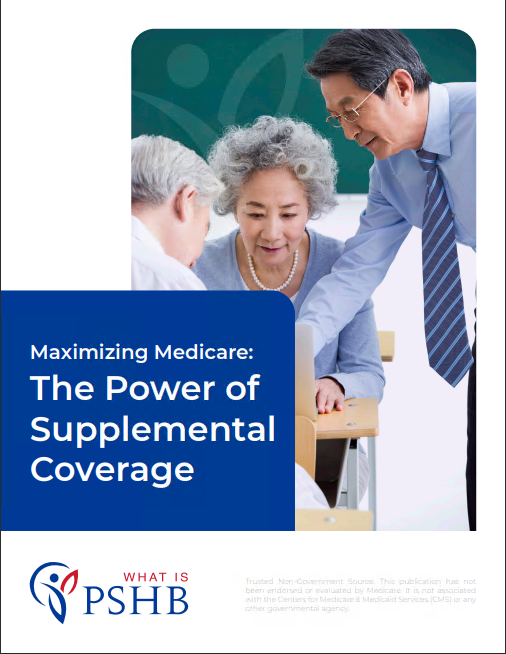Medicare and Postal Service Employees: Understanding Your Healthcare Options
As postal service employees transition into retirement, navigating healthcare options becomes a crucial consideration. Medicare, the federal health insurance program primarily for individuals aged 65 and older, plays a significant role in providing healthcare coverage for retirees, including postal service employees. In this article, we’ll explore the intricacies of Medicare and how it relates to postal service employees, including eligibility, coverage options, enrollment considerations, and potential impacts on retirement planning.
Understanding Medicare
- Medicare Part A: Hospital insurance that helps cover inpatient hospital stays, skilled nursing facility care, hospice care, and some home health care services.
- Medicare Part B: Medical insurance that helps cover medically necessary services, including doctor visits, outpatient care, preventive services, and durable medical equipment.
- Medicare Part C (Medicare Advantage): Plans offered by private insurance companies that provide Medicare Part A and Part B coverage, often with additional benefits such as prescription drug coverage and dental or vision services.
- Medicare Part D: Prescription drug coverage that helps pay for prescription medications.
Medicare Eligibility for Postal Service Employees
Postal service employees, like all Americans, become eligible for Medicare at age 65, assuming they or their spouse have worked and paid Medicare taxes for at least 10 years (or 40 quarters). However, some postal service employees may become eligible for Medicare before age 65 due to disability or certain medical conditions.
It’s essential for postal service employees nearing Medicare eligibility to understand their enrollment options and responsibilities. Failing to enroll in Medicare when first eligible can result in late enrollment penalties and gaps in coverage, so timely enrollment is crucial for avoiding potential consequences.
Coordinating Medicare with Postal Service Health Benefits (PSHB)
Many postal service employees are enrolled in the Postal Service Health Benefits (PSHB) program, which provides comprehensive healthcare coverage for employees and retirees. When postal service employees become eligible for Medicare, they must decide how to coordinate their PSHB coverage with Medicare benefits.
Understanding how Medicare works alongside PSHB coverage is essential for maximizing benefits and minimizing out-of-pocket expenses. In many cases, Medicare serves as the primary payer for healthcare services, with PSHB providing supplemental coverage for services not covered by Medicare. Some retirees may also choose to enroll in Medicare Advantage plans, which are offered by private insurance companies and provide an alternative way to receive Medicare benefits. These plans often include additional benefits, but it’s important to carefully review the specific coverage and costs of each plan.
Medicare Enrollment Considerations
Enrolling in Medicare involves several important considerations for postal service employees:
- Initial Enrollment Period: This is the seven-month period that begins three months before an individual turns 65, includes their birthday month, and extends for three months afterward. It’s crucial to enroll in Medicare during this period to avoid late enrollment penalties.
- Special Enrollment Periods: Some individuals may qualify for special enrollment periods based on certain circumstances, such as continuing to work past age 65 with employer-sponsored healthcare coverage.
- Part B Premiums: Postal service employees who delay enrolling in Medicare Part B because they have employer-sponsored coverage may be subject to late enrollment penalties and higher premiums when they eventually enroll. Understanding these potential consequences is essential when making decisions about Medicare enrollment.
Retirement Planning Implications
Understanding how Medicare fits into retirement planning is vital for postal service employees preparing for retirement. Medicare coverage can significantly impact healthcare costs and coverage options during retirement, so it’s essential to incorporate Medicare considerations into overall retirement planning strategies.
By understanding the interplay between Medicare and other retirement benefits, postal service employees can make informed decisions about when to retire, how to manage healthcare expenses, and which coverage options best meet their needs in retirement.
Conclusion
Medicare plays a critical role in providing healthcare coverage for postal service employees as they transition into retirement. By understanding Medicare eligibility, coverage options, enrollment considerations, and retirement planning implications, postal service employees can confidently navigate the complexities of Medicare and ensure they have the healthcare coverage they need in retirement.
Ready to learn more about Medicare and how it relates to postal service employees? Explore our resources and discover how to make the most of your healthcare benefits in retirement.
Stay tuned for more informative content on retirement planning and healthcare options for postal service employees.
Featured Articles
Licensed agents are available to help you find the best Medicare plan for you.
Working with a licensed agent can simplify your PSHB & Medicare experience.
Feedback For What Is PSHB
Let us know what you think!








